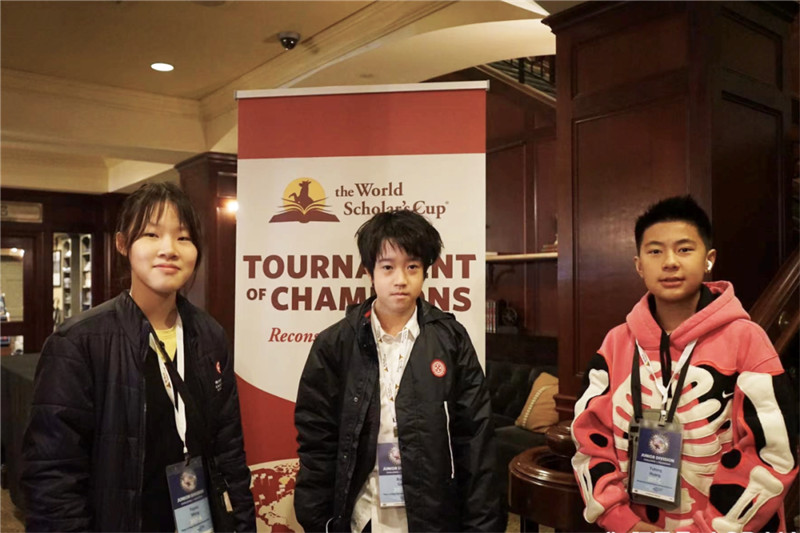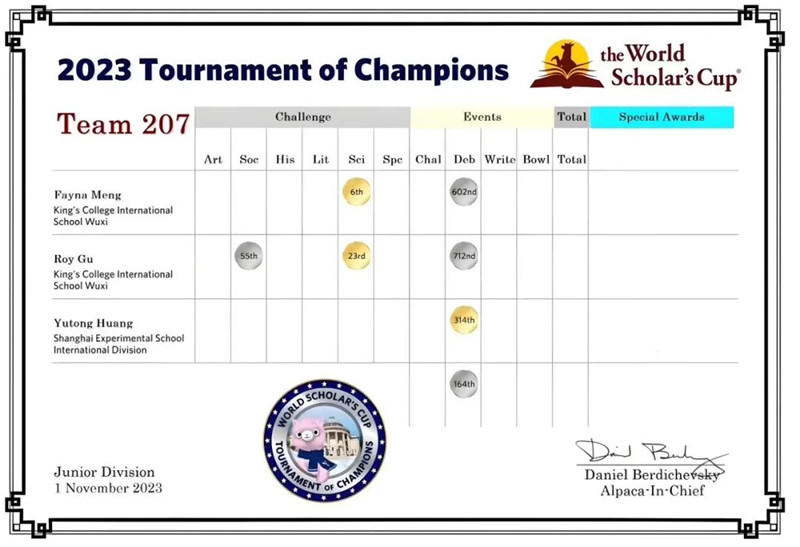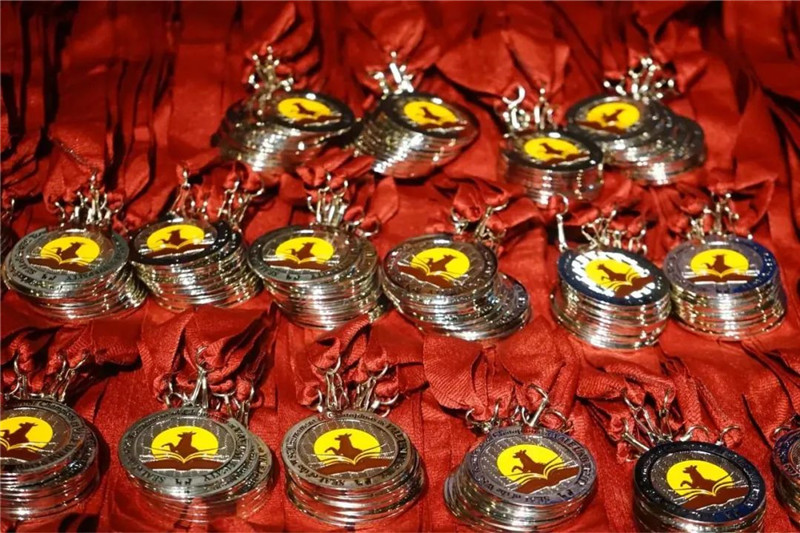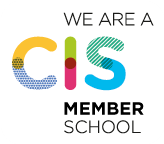
Our students, Fayna and Roy, went to the Championship round of World Scholar's Cup last month. These two traveled all the way to Yale University in the United States for a grueling 7-day competition among over 2000 participants from all over the globe. Not only did these two receive silver medals in the Debate category, Roy placed 23rd in the Science Challenge category and Fayna was in the top 10 in Science Challenge earning a gold at 6th place.


Donald M.
English Teacher-Upper Secondary
Economics Teacher-Lower Secondary
Fayna and Roy trained together at our World Scholar's cup CCA, and despite their initial nerves in debating, they grew by leaps and bounds in our practice week in and week out. They learned to organize as a group by taking certain roles in debate and in their study of the subjects, and their resilience and competitive spirit quickly drove them to the top at regionals in Nanjing last year.
Roy and Fayna have a serious but fun-loving attitude that helped them keep going despite the obstacles they faced in the later rounds. As they had to compete in very big tournaments in Xiamen and then Yale, it took a lot of grit for them to keep going and finish such high positions in the Science category.

In my 6+ years of coaching, I have never seen teams finish that high at Yale, so this is an achievement of which they should be very proud.

How did you prepare for the World Scholar's Cup?
As the World Scholar's Cup has varieties of topics to test on, some quite bizarre and incredibly niche. My team and I made study guides to better prepare, meeting up every few week to practice, and scouting the internet for study material- reading them all over and over till you grasp the materials like the back of your hand. Staging mock debates, in which we push for improvement and progress every speech made.
Do you have any advice for other students who aspire to compete in the World Scholar's Cup or similar academic competitions?
Have faith in your capability and don't let your doubts cloud you from trying- there's many chances in life, so don't close your door too soon to the limitless possibilities. If you fail, you'll lose nothing expect gain more experience to do better next time. It sounds cliche, but seemingly difficult things might not be as impossible as you think. Academic competitions like World Scholar's Cup is much less about talent and more about your determination and experience grasped after trial and error, pushing you to improve - you don't need to be a prodigy to give a try at anything.
What motivated you to participate in the World Scholar's Cup? Were there any specific goals you set for yourself before the competition?
I was motivated to participate in the World Scholar's Cup by my passion for learning and intellectual challenges. Furthermore, I was curious about the competition and eager to expand my knowledge beyond the confines of the school curriculums and courses.
How did you prepare for the World Scholar's Cup?
Preparation for the World Scholar's Cup involved a combination of individual study, such as making a study guide for you and your teammates, group discussions, in this case, we had a few meet-ups in the summer, and mock competitions, mainly debate. Not only that, we also took few WSC classes that involved debating and writing with another WSC Yale group, who we actually accidentally met in one of the competitions.
What were the highlights of your experience at the World Scholar's Cup?
The experience at the World Scholar's Cup was incredibly enriching and memorable. Not only that, I also learnt and developed a lot of new things, such as critical thinking from the writing and the debates and new knowledge that I was previously unaware of. Another thing was the additional trips, such as the trips in Harvard, MIT and Boston. Moreover, on the second to last day, there was also a trip to a local zoo that is a century old and possesses animals that most people would not have seen before. Furthermore, there were also talent shows that display incredible talents from all over the world.




 ENGLISH
ENGLISH 简体中文
简体中文

